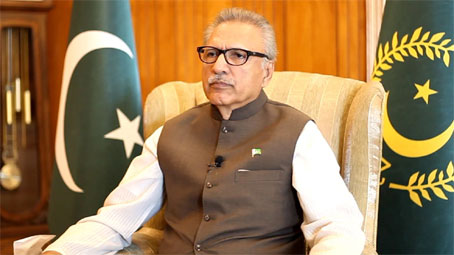ISLAMABAD: President Dr Arif Alvi on Monday stressed the need for developing Pakistan’s livestock sector, saying that it could contribute to economic development, food security and poverty alleviation.
Highlighting the importance of livestock in the economic development of Pakistan, the president said the livestock sector had great potential to earn foreign exchange and called for increasing the export value by meeting international requirements and ensuring quality control of products.
He was chairing a follow-up meeting on meat exports and processing at Aiwan-e-Sadr. The meeting was attended by the provincial secretaries and director generals of livestock departments, members of the All Pakistan Meat Exporters and Processors Association (APMEPA) and senior officials from the Ministry of Commerce and Ministry of National Food Security.
The meeting reviewed the progress on the decisions taken during the last meeting.
Secretary Livestock Punjab informed the meeting about the efforts made by provincial government to control the Foot and Mouth Disease (FMD) in animals.
The meeting proposed various solutions and strategies for controlling FMD in the country.
Similarly, meat exporters apprised the meeting about various issues and challenges being faced by them.
The president asked the concerned ministries and departments to facilitate meat exporters and address their problems, particularly the in rationalisation of certification process of halal food and issuance of quarantine certificates.
He reiterated the government’s commitment to address the problems of exporters and processors enabling them to enhance production and increase exports.
He urged the private sector to play its role in promoting livestock sector as it had potential to generate foreign exchange as well as generate employment opportunities in the country.




